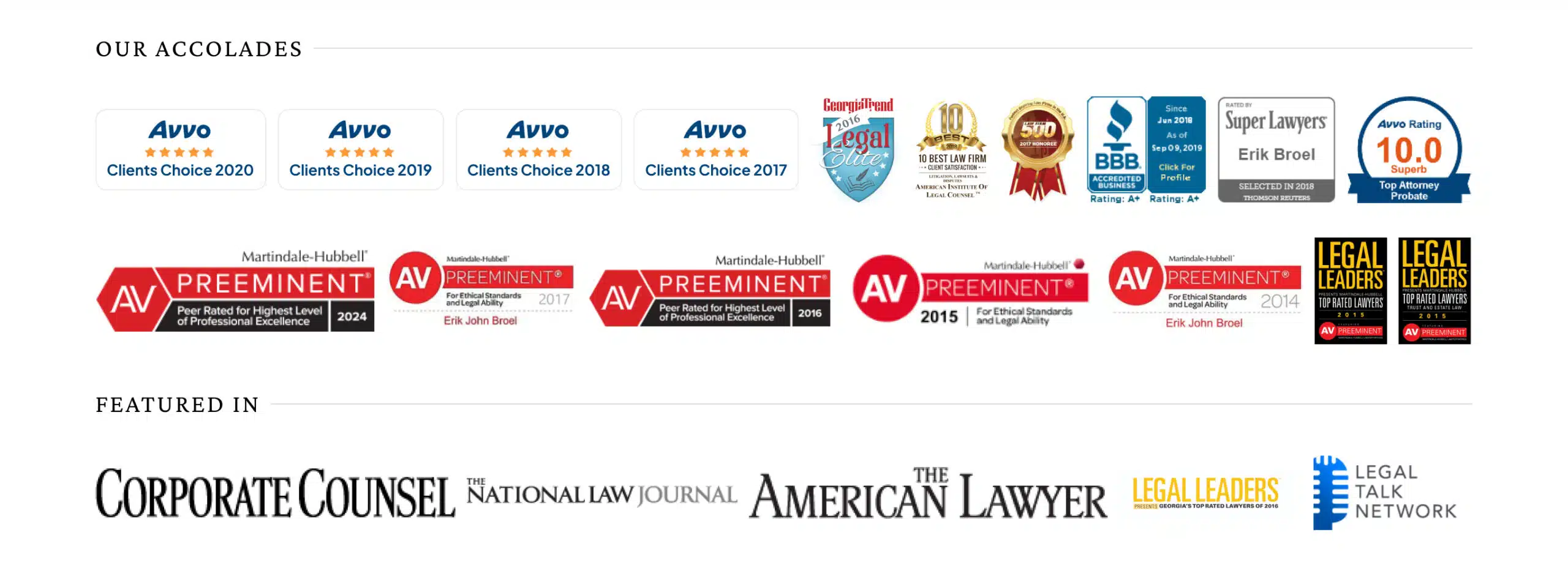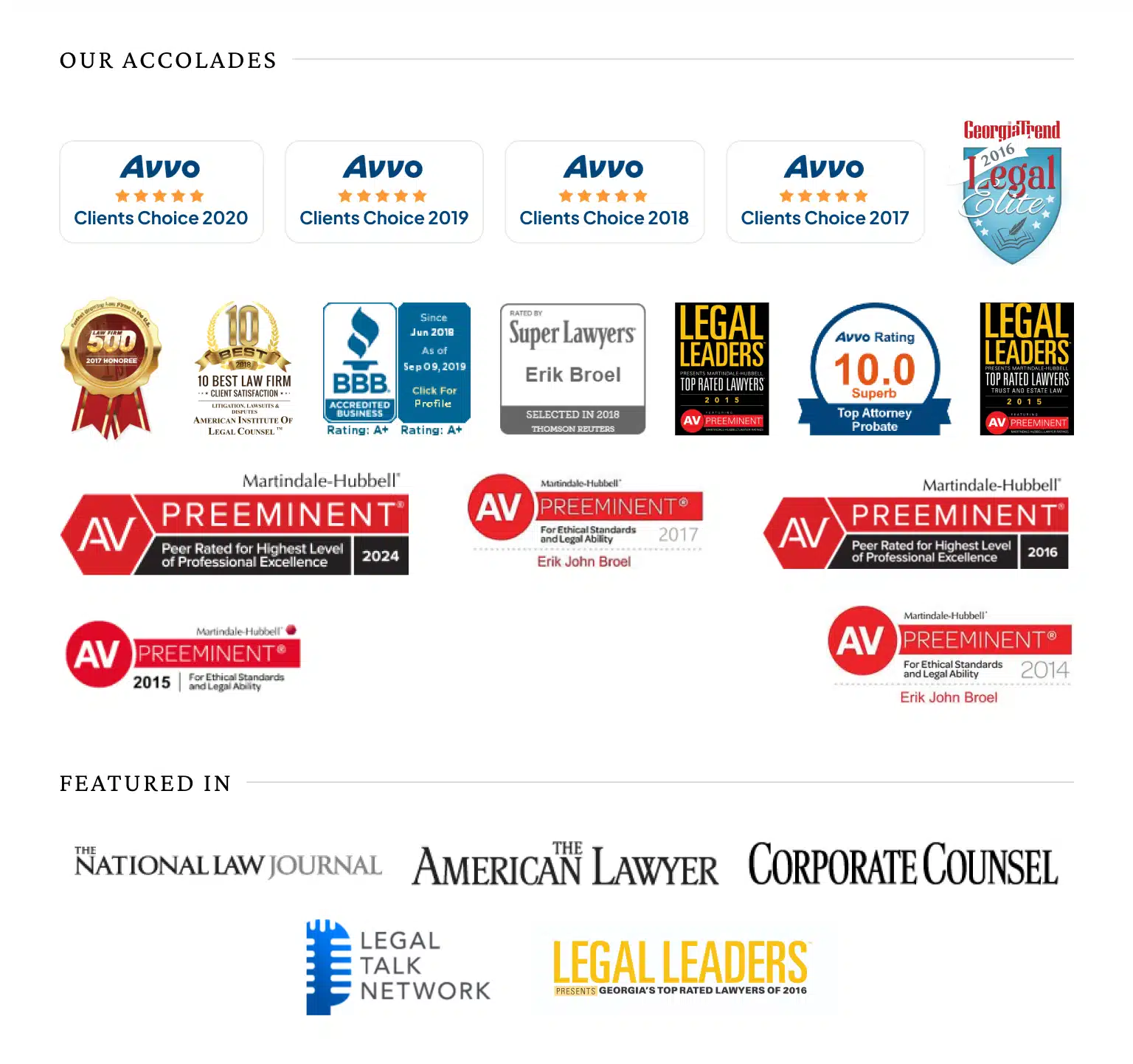Dealing with the death of a loved one is devastating enough without debt collectors beating down on your door to demand payment. If you’ve just assumed your role as an appointed executor or administrator, questions like these may have crossed your mind: “How long do creditors have to collect a debt from an estate?”, “Do we have to pay our deceased loved one’s debt?”, “Can we be exempt from paying these debts?”, “Which creditor should we prioritize?”
Discovering credit card debt or any other personal loans left by deceased relatives is not uncommon, but it can get complicated if you’re not sure what to do.
As a rule, all unpaid debts should be collected from the deceased person’s estate before heirs receive their share.
And it will be your responsibility as the personal representative to facilitate this.
Typically, only probate assets are part of the estate and used to pay creditors. It is important to speak with a probate attorney regarding what obligations family members may have to pay the estate debts.
Although family members are typically not responsible for their loved one’s debts, they can also be liable if:
If the deceased took out a mortgage with a partner or surviving spouse, the obligation automatically transfers to the surviving borrower.
If there is no co-signer, no one will be held liable, but family members cannot keep their home unless someone else assumes responsibility for the loan.
There are nuances to the probate process that you may not be on this list, so it’s best to seek assistance from an experienced attorney.
In the meantime, read on to find out how to handle creditors in probate.
You have to discuss outstanding debts with the creditors and ensure that you satisfy them in a certain order.
In Georgia, a system dictates which debt you should pay first.
It goes from 1-8, with 1 being the first creditor to pay and eight being the last.
It is imperative to follow the correct order; otherwise, you will become personally responsible for settling what the deceased person owed.
This claim is only available to a surviving spouse or a minor child. A family member should file a claim against the estate within two years of death. Remember that this is a complicated proceeding, and you only get one shot to get it right. We strongly recommend hiring a qualified probate law firm to assist you.
According to state law, the deceased person’s assets can reimburse reasonable expenses related to the decedent’s funeral or cremation.
These costs are associated with settling the estate and can include court and legal fees.
All costs related to the final illness will fall into this category.
These are State or Federal Taxes and other obligations owed to the government.
Secured debts allow companies to take certain property when the decedent has no means to pay debts. An example would be a mortgage or an auto loan.
Unsecured debts cover the person’s debts that do not fit into the above categories like credit card debt, medical bills, or medical expenses that are not associated with the patient’s terminal condition.
After clearing all outstanding debts, the personal representative distributes what remains from the estate to the deceased person’s heirs and beneficiaries.
The Executor or Administrator may be compelled to pay with their own money if the creditor list is not followed correctly.
Bypassed estate creditors may also seek payment from family members who inherit property from the estate.
Before the court discharges you from your position and the liability tied to the estate, you must certify that you have paid all claims.
If any information you disclosed is untrue, you can be liable to the court and the unpaid creditors.

Once the ad has run, they must keep the estate open in the probate court for at least three months to allow any probate creditors to come forward to file their claims.
Anyone with a claim may contact the executor or administrator directly or file a creditor’s claim through the probate court.
If you believe that the claim is invalid, you may have the opportunity to dispute the creditor’s claim.
The disagreement may be presented to the court before a final decision is made on whether you should pay the person or entity.
Once a Personal Representative has been appointed, they will have six months to gather assets and determine what creditors need to be satisfied. This does not apply to mortgages, vehicle loans, or security interest on the estate’s property.
This is enforced for two main reasons:
First, families need more time to get clear on their finances. Second, probate law prefers a structured process where creditors, beneficiaries, and heirs are all paid in careful order.
Creditors can file their claims for as long as the estate is open and before their applicable statute of limitations expires.
What is the statute of limitations?
The statute of limitations prescribes a period when parties can take legal action against someone who has committed an alleged offense.
For example, the statute of limitations on credit card debt in Georgia is four years. This means the credit card company has four years at its disposal to sue a person for refusing to pay. The length of time varies depending on the harm done.
Creditors may attempt to force open probate if they feel that there are assets (e.g., property, money) they could rightfully claim in the estate.
They may also place liens on assets in the deceased’s name to collect the person’s debts once that asset is liquidated. They can only attempt to recover what they are owed from probate assets.
The law prioritizes using the deceased person’s assets to pay their debts. If there are no liquid assets, you may be required to sell real estate or other property to ensure that creditors are satisfied.
If there still aren’t enough assets to cover the deceased person’s debts, the estate may be considered insolvent.
The heirs and beneficiaries will not be responsible for settling these debts, but this also means they won’t receive any inheritance from the estate.
Creditors cannot collect from assets that you are unable to liquidate, such as retirement savings and life insurance policies that have a designated beneficiary.
You may think some items fall under this category, but as long as they hold value, you can liquidate them to pay debts. Examples would include a vehicle, an artwork, a stamp collection, a boat, or a coin collection.
States can declare various entities as exempt, so it’s best to check state laws where you live.

In this case, opening probate may be considered so that the creditors’ claims can be satisfied through the probate process.
If you seek help from a probate attorney, they may work to negotiate debts as well, but there is no guarantee that the debts will be lowered.
With proper planning, yes. You can file certain documents with the Georgia probate court to stop such claims.
Debt collectors are generally aware of these tactics. While some respect them, others resent the process and take aggressive action to collect. This may pressure family members into paying from their personal funds, even in situations where they are not required to do so.
The answer depends on whether the deceased assigned a beneficiary on the policy in case of death.
If the deceased named a beneficiary on the policy, you won’t have to use the proceeds to settle debts, no matter what collectors say. Otherwise, the policy will be considered part of the estate and used to pay off debts.

Although debts still need to be paid, administrators or executors have the right to block collectors by sending them a cease-and-desist letter or directing calls to their lawyer’s office.
If you are the personal representative, you must confirm that a legal notice has been posted in the newspaper for the law to consider the estate formally open. Otherwise, you can still be pursued for claims even after the estate has been closed.
You can learn more on this subject here.
Meeting your legal obligations without sacrificing your home or any important property in the process can be challenging. If you find yourself in this situation, and still don’t have a clear answer to how long do creditors have to collect a debt from an estate, it may be in your best interest to have this matter handled by a probate lawyer. Feel free to contact our office at (770) 796-4582 to set up a consultation.
Disclaimer These websites have not been reviewed by Georgia Probate Law Group and are not endorsed or even recommended by Georgia Probate Law Group. These websites are additional resources that you can use to further your general education on this topic.
Disclaimer: The information above is provided for general information only and should not be considered legal advice. Our probate attorneys provide legal advice to our clients after talking about the specific circumstances of the client’s situation. Our law firm cannot give you legal advice unless we understand your situation by talking with you. Please contact our law office to receive specific information about your situation.
Compassionate listeners, knowledgeable guidance. Schedule a free consultation with our team and let us help you and your family with your legal concerns.
GET IN TOUCH 770-796-4685Learn Important Probate Essentials, including key things that go wrong in an estate, how to prevent them, and what to do if they happen.



© 2025 Georgia Probate Law Group by Broel Law, LLC. All rights reserved.